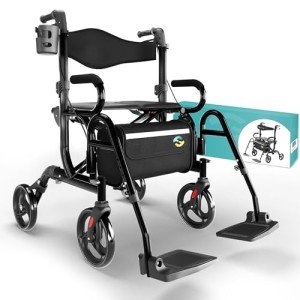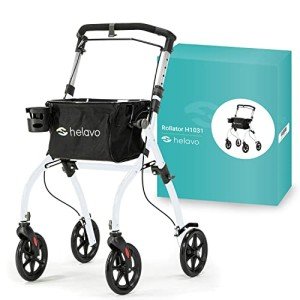Guide To Senior Walker: The Intermediate Guide For Senior Walker
본문
A Comprehensive Guide to Medical Walkers: Enhancing Mobility and Independence
In the world of health care, mobility plays a crucial function in rehabilitation and overall well-being, especially for seniors and those recuperating from injuries. Among the myriad of mobility help readily available today, medical walkers stand apart as flexible tools that help with movement and boost independence. This post will dig into the types, benefits, considerations, and FAQs concerning medical walkers.

What is a Medical Walker?
A medical walker, often referred to as a walking frame, is a supportive device developed to help individuals with mobility difficulties walk with higher stability and ease. Walkers supply a wider base of support compared to walking canes and crutches, making them ideal for those with balance concerns or restricted strength.
Kinds Of Medical Walkers
| Type | Description | Features |
|---|---|---|
| Standard Walker | A standard four-legged frame without wheels, used mostly for stability. | Lightweight, strong, adjustable height, suitable for indoor and outdoor usage. |
| Wheeled Walker (Rollator) | A senior walker with wheels on the front legs, permitting for much easier movement. | Equipped with hand brakes, a seat for resting, and storage alternatives. |
| Hemi Walker | A Top Performance Walker developed for individuals who can utilize one arm and need support. | Lightweight and compact, features a curved handle for much easier gripping. |
| Bariatric Walker | Created for bigger individuals, providing increased weight capability and stability. | Improved toughness, broader frame, and encouraging features for heavier users. |
| Knee Walker | An unique alternative for those with leg injuries, enabling them to rest the knee. | A platform to support the hurt leg, guiding abilities, and brakes. |
Advantages of Using a Medical Walker
- Improved Stability: Walkers offer additional points of contact with the ground, resulting in a more Stable 4-Wheel Walker walking experience.
- Increased Independence: Users can browse their environment without requiring assistance, boosting confidence and self-reliance.
- Boosted Safety: The threat of falls is considerably decreased, as walkers use support to those with balance concerns.
- Versatile Usage: Many walkers are created for both indoor and outdoor usage, adjusting to various surfaces.
- Assistance throughout Rehabilitation: Medical walkers are indispensable during healing from surgical treatments, injuries, or illnesses.
Considerations When Choosing a Medical Walker
When selecting a medical walker, different elements ought to be kept in mind:
| Consideration | Description |
|---|---|
| User's Condition | Examine the individual's strength, coordination, and specific needs. |
| Equipment Weight | Ensure the walker is lightweight enough for easy handling however durable enough for support. |
| Adjustable Height | The walker needs to be adjustable to fit the user's height for ideal convenience and functionality. |
| Hand Grip Comfort | Check that the grips are comfortable to hold for extended periods. |
| Weight Capacity | Guarantee the walker can support the user's weight, especially for bariatric walkers. |
| Storage Needs | Figure out if extra features like baskets or trays are essential for carrying products. |
Frequently Asked Questions (FAQs)
How do I identify if I need a walker?If you experience trouble in maintaining balance, feel unstable walking, or need assistance on flat surfaces or slopes, it's a good idea to seek advice from a healthcare professional for an evaluation. Can I use a walker outdoors?Yes, specifically designed
walkers with larger wheels(wheeled walkers or rollators)appropriate for outdoor use and can deal with different surfaces effectively. How do I maintain my walker?Regularly examine the walker for loose parts, make sure wheels are lubricated if
appropriate, and clean it as required. Seek advice from
the manufacturer's guidelines for specific upkeep instructions. Are walkers covered by insurance?Many insurance coverage prepares offer coverage for walkers, but it is necessary to contact your provider to understand your specific policy
details. Can a walker assist with physical therapy?Yes, utilizing
a Medical-Grade Walker can support rehab efforts by providing stability throughout exercises recommended by physiotherapists. Medical walkers are important tools that not
only assist in movement and self-reliance but likewise significantly enhance the quality of life for people dealing with mobility challenges. With numerous types offered, picking the ideal walker is
crucial to satisfying specific needs. The journey to regaining mobility can be difficult, but with the right devices and support, people can overcome barriers and reclaim their self-reliance. By comprehending the types of walkers, their advantages, and necessary considerations, users can make informed choices-- causing a much safer, more confident method of moving through life. Whether it's a Best Rollator Walker for outdoor experiences or an easy walker for indoor navigation, the right walker can open doors to newly found flexibility and enhancement in daily life.


댓글목록 0
댓글 포인트 안내